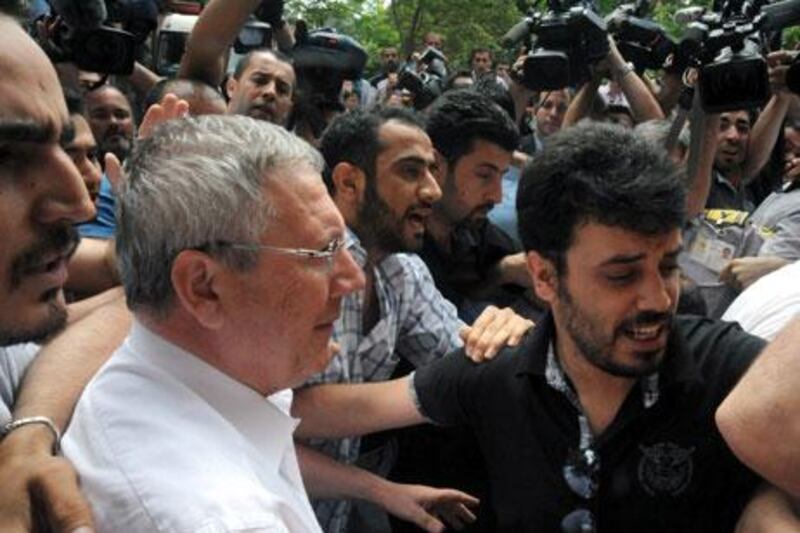From South Korea to South Africa, from Africa to the Arctic and around much of the Mediterranean, a disturbing spectre has returned to world football: match-fixing.
Perhaps it never really went away, but at a time when allegations of corruption have been levelled at the game's governing body, Fifa, accusations and, in some cases, criminal investigations, are wide-ranging and worrying.
Most dramatically, Turkish police have arrested the presidents of both Fenerbahce and Trabzonspor, Aziz Yildiram and Sadri Sener, with more than 20 of last season's games under suspicion. Fenerbahce clinched the title on the final day of the campaign, at Trabzonspor's expense, but that could yet be revoked, along with a place in the European Champions League.
In Greece, meanwhile, 68 suspects have been named in what has been termed "the darkest page in the history of Greek football" by the deputy culture minister, Giorgos Nikitiadis. They range from owners and players to referees who are alleged to have fixed games in the 2009/10 campaign and, damningly, they include the Super League president, Vangelis Marinakis.
Just across the Adriatic Sea, one of the great goalscorers of his generation, Giuseppe Signori, was among 16 people arrested by Italian police looking into an alleged Bologna betting ring.
Last month in Poland, 11 players, including Lukasz Piszczek, the Borussia Dortmund midfielder, were fined and given suspended prison sentences for fixing a top-flight game in the 2005/06 season to ensure their team, Zaglebie Lubin, qualified for the Uefa Cup.
Not that such corruption seems solely a European disease.
Forty-six current or former players from South Korea's K League have been indicted for their ties to match-fixing, with 10 receiving life bans and one suspect, a Seoul United midfielder, hanging himself. Members of Zimbabwe national team, including the captain, Method Mwanjali, have testified they were paid to lose games on a tour of Asia.
Some incidents are isolated, but others are connected by global betting.
In May, the Croatian, Ante Sapina, was sentenced to five-and-a-half years in a German jail after admitting fixing 20 matches including a World Cup qualifier between Liechtenstein and Poland.
That may only be the tip of the iceberg.
Friedhelm Althans, the head of the inquiry in Germany, said: "We know about 300 matches in 20 countries where we have the suspicion that they may have been manipulated.
"The matches concerned involve mainly lower-ranking leagues, but it goes all the way up to national teams and Champions League games."
Lower-ranking leagues, to use Althans's phrase, are especially vulnerable.
Finland has one of Europe's few summer leagues, allowing gamblers to bet while the more prominent divisions are in recess. Tampere United, the champions in 2007, have been suspended indefinitely for receiving payments from a Singaporean company linked to a suspected match fixer.
While events in Poland and Turkey appear a case of alleged offenders casting their principles aside in a bid to realise footballing ambitions, the motives elsewhere appear primarily financial. There is an emerging marketplace in which players can be bought.
Internet gambling means seemingly obscure games in far-off countries can suddenly become profitable while comparatively poor players have fewer reasons, besides morality, to repel the advances of the corrupt.
The rewards for elite performers are such that they would have to be criminally stupid - as well as criminals in law - to be bribed. It is telling that many of those under suspicion in Italy are lower-league players while South Korea will double the minimum wage from US$11,350 (Dh41,688) in an attempt to keep players from temptation.
Fifa, meanwhile, has announced plans for a £17.5million (Dh103,743m), 10-year programme to fight match-fixing and has vowed to work alongside Interpol.
"In the fight against illegal betting and match-fixing, the preventive measures that can be taken and the protection of the players and the integrity of the game are of the utmost importance," Sepp Blatter, the president said."
Whether he is the man to stand on the moral high ground is debatable, but the sentiments are unarguable.
[ sports@thenational.ae ]






